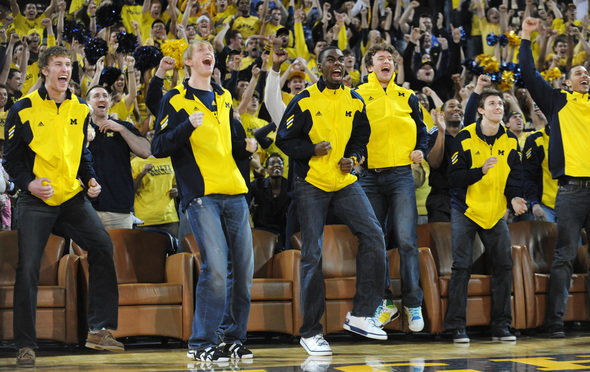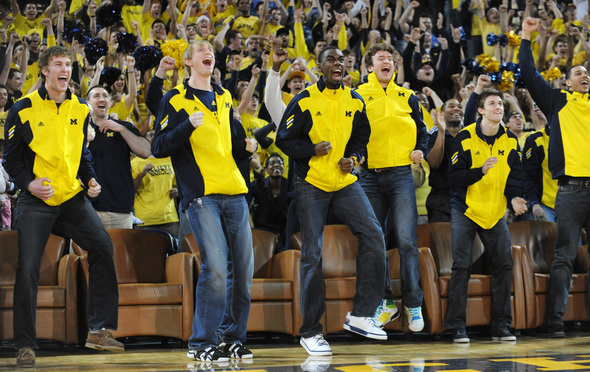Dear Sports Fan,
What is Selection Sunday?
Thanks,
Siobhan

— — —
Dear Siobhan,
Selection Sunday is the day that the 68 teams who have qualified for the NCAA Men’s Basketball Championship Tournament (March Madness) are announced. It’s also today, so let’s get down to the business of explaining how it works.
Like another facet of college, the admissions process, not all 68 open spots are open to every team equally. In college admissions, some spots (a majority at some schools, I believe) are reserved for the children of University employees, legacies whose parent attended the school, or star athletes. In the case of Selection Sunday, 32 of the 68 teams are reserved for conference champions. There are so many schools in the top division of college basketball with teams that they can’t all play each other in the regular season. Instead, their schedules are largely driven by what conference they are in. Conferences are federations of schools who agree to play with and against each other — one day soon we will write a post all about conferences. In the week leading up to Selection Sunday all but one of these conferences hold championship tournaments of their own. These conference championships are miniature versions of March Madness — single elimination tournaments that end in a championship game. The one exception is the Ivy League who disdains tournaments and simply declares the team with the best regular season record to be their champion. Each of the 32 conference winners are guaranteed a spot in the field of 68 teams that make it into the NCAA tournament. These 32 spots are called automatic bids.
The other 36 spots in the 68 team field are called at-large bids and are chosen by a selection committee. The selection committee is made up of ten college athletic directors or conference commissioners and functions just like committees everywhere. It creates controversy. According to a post about March Madness on howstuffworks.com the committee selects based on the following factors:
- Rating Percentage Index (RPI) (For more information on RPI, go to CollegeRPI.com.)
- Ranking in national polls
- Conference record
- Road record
- Wins versus ranked opponents
- The way a team finishes the regular season
Also, I would add, just like the college admissions process, the factors of instinct based on having watched the team during the year, luck, and how much coffee the committee member has had in the last half hour.
Conference is one of the most visible factors in the selection process. There’s a few conferences like the Big 12, Pac-12, Big Ten, and Atlantic 10 that are likely to get five or more teams into the tournament, then there’s a small middle of conferences that will get two or three teams, and a long tail of conferences where only the winner of their conference championship tournament will make the NCAA tournament. These three groups of conferences can colloquially be referred to as power conferences, mid-major conferences, and one-and-done conferences. Traditionally the overall winner of March Madness has almost always come from a power conference but the mid-majors are getting stronger every year. This year a mid-major, Wichita State, won every game throughout the regular season and conference championship and is thought to have a good shot to win the big tournament. The one-and-done conferences are called that because they usually only get one team into March Madness and that team usually loses in its first game.
The excitement of Selection Sunday is mostly about the ten or so teams that realistically don’t know whether they will be selected for the tournament or not. These teams are called bubble teams or are said to be on the bubble which is a nice visual. In addition to the secret whims of the selection committee these teams are effected by the outcomes of the conference championships. This is because of the automatic bids that conference champions receive. In most conferences, the team (or teams depending on what type of conference this is) with the best regular season performance are pretty much locks to get into the NCAAs. If a team outside of this group surprises everyone and wins the conference tournament, they will get the automatic bid, and, if the selection committee doesn’t subtract one of the teams from that conference from their selection, then all of the teams from that conference that were going to get in will get at-large bids, the under-dog upstart will get the automatic bid, and there will be one fewer at-large bid for the bubble teams to fight over. An example of this happened last night in the Big East when Providence upset Creighton. Creighton is still likely to make the tournament but as an at-large team. Providence, which wasn’t likely to qualify, now will on an automatic bid. And a bubble team like Minnesota or Xavier, as The Big Lead supposes, will not qualify as a result.
The selection will be announced on CBS around 6 p.m. ET after the conclusion of the SEC championship game. Enjoy!

